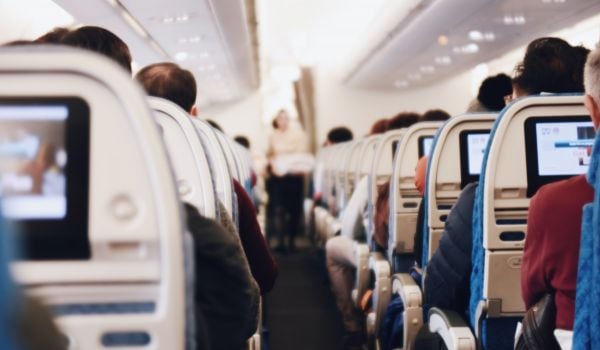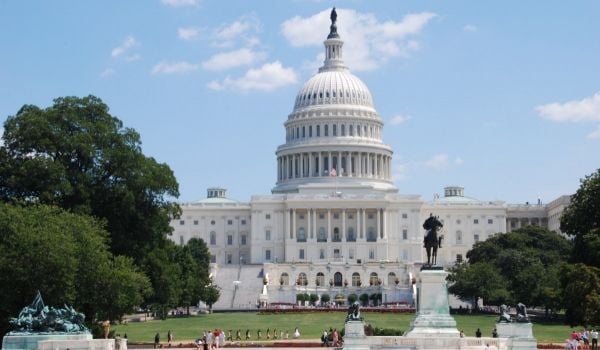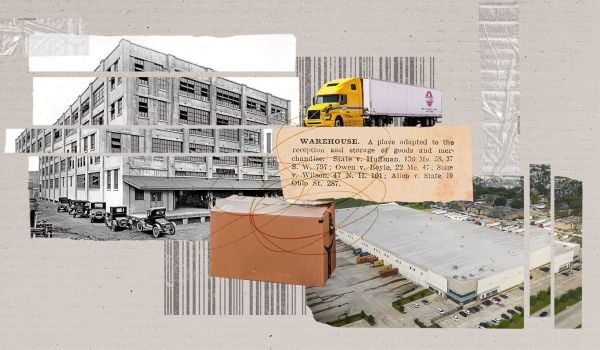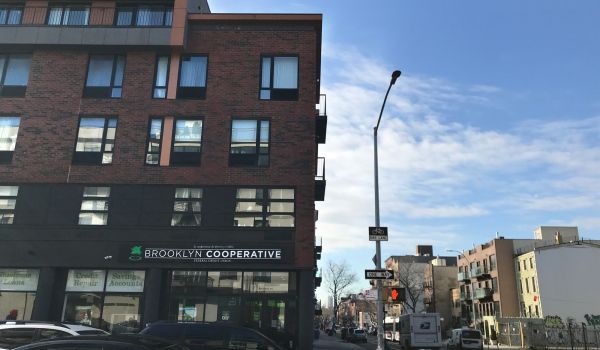Welcome to The Weekly Wrap, our Friday round up of stories that explain the problems oppressing people in cities and elevate the solutions bringing us closer to economic, environmental and social justice.
Do you have news or an event that should be in The Weekly Wrap? Email us details at wrapped@nextcity.org — and it might just get included in our next edition!
Programming note: Next week, our team will be in Richmond for our Vanguard conference so we’re skipping The Weekly Wrap. We’ll be back with the next round up on Sept. 29!
Child Poverty Doubled As Child Tax Credit Elapsed
Predictably and sadly, the child poverty rate soared after key federal pandemic protections, most importantly the child tax credit, were allowed to elapse. The rate of child poverty grew from a low of 5.2% in 2021 to 12.4% in 2022 according to census measures, CNN reports. During that same time period, the overall poverty rate increased from 7.8% to 12.4%, higher than the pandemic, which means that child poverty increased at a faster pace than poverty overall. The American Rescue Plan included credits of up to $,600 for each child under 6 and $3,000 for children ages 6 to 17, which lifted 2.1 million out of poverty in 2021, but Congress did not renew the credits later that year. An expanded Child Poverty Tax credit could have kept over 5 million children out of poverty, according to a report released Tuesday by Columbia University.
Additionally, the uninsured rate decreased to 7.9% last year, but that data doesn’t account for the mass Medicaid rollbacks that are happening this year as a pandemic-era restriction on disenrollment ended.
Tribes Have Trouble Accessing Renewable Funding In Inflation Reduction Act
Reuters reports that the Standing Rock Sioux tribe in the Dakotas is unable to secure contracts to build the first large, tribal-owned wind farm in the U.S. The tribe doesn’t have the resources or the legal expertise to navigate the burdensome regulatory requirements, according to Reuters. The Inflation Reduction Act allocates $14 billion in funding to build wind and solar projects on tribal land and allows direct payments to tribes, but some incentives provided under IRA expire next year. The Standing Rock Sioux have already paid $3 million in fees and for studies to remain in competition for the funds but have no guarantee of getting them.
Ohio Walgreens Pharmacy Workers Move To Unionize
Pharmacy workers at three Walgreens locations in Northeast Ohio declared their intent to unionize, according to Axios. Pharmacists, pharmacy technicians and customer associates at Kamm’s Corners, Broadway Avenue and Clark Avenue locations delivered signed union cards to management last Friday. “Pharmacy workers fill hundreds and hundreds of prescriptions every day with often bare-bones staffing,” the workers wrote in a letter to management that was shared with Axios.
They’re demanding a minimum hourly wage for pharmacy workers of $20 and for pharmacy technician hours to be increased by 20%. While pharmacists generally make incomes in the six-figure range, pharmacy technicians — who have a similar job descriptions but without the same medical degrees — make a fraction of that. Indeed lists pharmacy technician salaries in Ohio as between $17 and $27 hourly. There has been wave of organizing in Northeast Ohio, including Starbucks and REI, according to Axios.
Jersey City Could End Amazon Warehouse Tax Break
The city council of Jersey City took the first step to cancel a 20-year tax break for an Amazon warehouse, according to Hudson County View, for violating an agreement with the city. Amazon violated a requirement to have 51% of warehouse employees be from Jersey City and for 51% to be from minority backgrounds. The city also says the company refused to comply with monitoring from the Jersey City Office of Tax Abatement or provide any documentation showing that it was taking steps toward meeting the requirements. Economic development strategies that rely on enormous tax breaks for companies based on unenforceable promises of job creation have been increasingly criticized in recent years, with many advocates pushing elected officials to get promises in writing and enforce them or ditch the costly tax breaks altogether.
Houston Residents To Be Moved From Contaminated Railyard
The city of Houston will move some residents of a neighborhood near a contaminated rail yard owned by Union Pacific, Houston Public Media reports. The area surrounding the rail yard was found to have higher than usual cancer rates as a result of creosote, a chemical that was used decades ago to treat wooden railroad ties. Residents have been asking the city to clean up the contamination for years. Moving them will cost $24 million, and Houston Mayor Sylvester Turner has called on Union Pacific to help with funding. Family members who lost loved ones to cancer appeared at a press conference with Mayor Turner announcing the move earlier this summer.
“The Houston case offers an opening for cities with similar histories of environmental injustice,” Andre Perry and Manann Donoghoe of the Brookings Institution write for Bloomberg CityLab.
Curated by Deonna Anderson
MORE NEWS
-
Listen to people over 65 share some of the difficulties they face navigating their towns and cities. Plus, how to make cities more age-friendly. New York Times
-
After being devastated by the Dixie Fire by 2021, the city Greenville is ‘building back better’ with redevelopment support from the Sierra Institute for Community and Environment, which is using cross laminated timber to build fire-resistant homes. Center for Creative Land Recycling and The Plumas Sun
-
Only around 60 percent of housing choice voucher (formerly Section 8) recipients find a landlord who will rent to them. So, what would happen if the federal government gave them cash instead? Vox
-
City supervisors in San Francisco approved a plan to begin creating the nation’s first municipal bank. The public bank, which would aim to meet the needs of low-income residents and communities of color, may take years to get off the ground because of state and federal regulatory hurdles. Axios
RESOURCES
-
City Thread is accepting applications for the third cohort of its Accelerated Mobility Playbook Technical Assistance program. Cities that are ready to advance their mobility networks are encouraged to apply. Applications will be accepted until Oct. 31. Learn more here.
-
The Association of Arts Administration Educators is accepting applications for its Arts Administrators Pipeline Fellowship program. The 11 people who are accepted will participate in a 12-month paid fellowship and receive a $50,000 stipend, as well as professional development opportunities. Host organizations will receive $35,000 to support fellows. Applications are due on Sept. 20 by 11:59 p.m. Pacific. Learn more and apply here.
EVENTS
-
The de Young Museum is hosting “Our Shared Struggle: The International Imperative for Repair,” part of its Kehinde Wiley Speaker Series. Saturday, Sept. 16 at 1pm Pacific. You can join in person or virtually. Learn more here.
-
If you’re in or near Richmond, Virginia, join us in-person for a Vanguard keynote address by Ana Edwards, public historian and assistant professor at Virginia Commonwealth University. Sept. 20th at 6:00 p.m. at the Hippodrome Theater. Read more about her talk and register to attend here.
-
Also next week during Vanguard, tune in to our live-streamed Pecha Kucha session, Imagining Richmond’s Just Future, to hear insights on truth, racial healing, and what to do next with changemakers from Richmond, Friday, Sept. 22 at 4:15 p.m Eastern. Click the link above to join the virtual audience.
-
The Urban Institute is hosting a conversation about the financial cost of climate change on American households. Friday, Sept. 29, 2023 at 1 p.m. Eastern. You can join virtually or in-person. Learn more and register here.
-
Check out other Next City events and others hosted by partner organizations here.
This article is part of The Weekly Wrap, a newsletter rounding up stories that explain the problems oppressing people in cities and elevate the solutions bringing us closer to economic, environmental and social justice. Click here to subscribe to The Weekly Wrap newsletter.

Roshan Abraham is Next City's housing correspondent and a former Equitable Cities fellow. He is based in Queens. Follow him on Twitter at @roshantone.


















